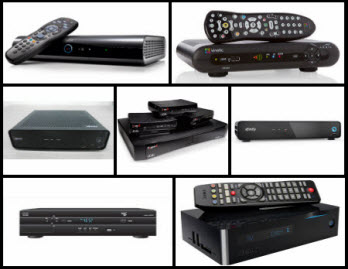FCC Needs to See the Light (of Innovation)

The smarter way to stay on top of the multichannel video marketplace. Sign up below.
You are now subscribed
Your newsletter sign-up was successful
Last Thursday (Sept. 29), the chairman of the Federal Communications Commission agreed to temporarily delay the clumsily introduced initiative that would insert the FCC into the management of copyrights as well as the distribution and packaging of cable programs. A lot of digital ink has been spilled on the problems with this approach and the cost, pain and confusion it would cause the storytellers that not only create great content, but have developed and supported the cable and satellite industries.
Do not celebrate just yet. You can take a momentary deep breath after the commission temporarily delayed a vote, but the commission has once again gone behind locked doors to design a new version of the same plan, and indications are that it is once again refusing input from the entertainment community.
This issue involves federal regulation of pay TV set-top boxes. The FCC seems hell-bent on creating a new federal set-top licensing system that would control program distribution. The beneficiaries are clear: a few large tech companies, which will profit by injecting their own advertising and editorial discretion into our programming.
But their victory will come at a huge cost to the entertainment industry because it upends the licensing and compensation system on which most of our companies depend.
As Martha De Laurentiis, producer of the popular NBC series Hannibal, recently told The New York Times, “Virtually the entire creative community — including actors, filmmakers, screenwriters and production crews all over the country — rejects the Federal Communications Commission’s plan.”
This plan must be stopped.
It is a direct threat to the entertainment community and the people who work in it. Its impact on quality entertainment, especially entertainment for African-Americans, Latinos and communities of color, will be large.
The smarter way to stay on top of the multichannel video marketplace. Sign up below.
The FCC needs to hear loudly and clearly that this process must be slowed to allow the entertainment community’s concerns, which include issues that directly affect our viewers, to be addressed. More than 200 Members of Congress (both Democrats and Republicans) have already called out the FCC over this plan. So have entertainment unions and civil rights groups concerned about the harm to programming for their communities.
But more voices need to speak up, which will only happen if we make our voices heard! The commission created its proposals in unprecedented secrecy. That has to change.
The public and the programmers both deserve time to weigh in on crucial areas that the FCC has ignored. There should be no urgency on an issue this complicated. Far better that the commission take its time and gain additional perspective than to rush into a complex, legally questionable plan.
In addition to licensing and compensation problems, the FCC’s plan has a third major problem: It is so poorly written that it could undercut efforts to curb content piracy. Rampant theft of our work is causing serious harm. Indeed, as De Laurentiis notes, online piracy was a key reason her popular show was cancelled.
What unfortunately seems to be lost on the FCC in its closed-door discussions is that the entertainment industry is already rapidly moving toward giving consumers greater programming access. Consumers have more viewing freedom now than at any time in history and the trend is clearly continuing in this direction. This is an important message and deserves the cCommission’s attention.
But there’s a crucial distinction between the FCC’s plan and this growing openness. This current trend is fueled by the growth of “TV apps,” which are doing for TVs what mobile apps have already done for our smartphones. With these apps, viewers can watch what they want when they want it, through proper licensed channels.
This helps keep viewers from going to pirate websites and, in turn, helps us earn a fair return for our efforts.
The FCC’s attempt to regulate licensing and set-top boxes involves vague and complex rules guaranteed to spark years of confusion, bureaucratic lobbying and lawsuits. The U.S. Copyright Office, which is another branch of the federal government, has warned openly against the FCC’s effort because of how it would spur piracy.
This entire situation regarding the set-top box vote is creating an aura of confusion around the entire industry, weakening our core business model while we are in the midst of the greatest amount of change in history. Technology and innovation are wonderful for our industry. Ignoring the pillars of copyright and compensation for storytellers is not, not for cable companies, not for the producers who created those stories, and certainly not for the public.
To lead our industry and the nation, the FCC should open the discussions to get to the right answers in the innovative air of transparency, not in the clouded, smoke-filled room of closed-door meetings and back-door politics.
The entertainment community and the viewers it serves have a lot riding on this. The FCC should give everyone time to address these issues before voting on a new plan. Our ability to license and receive proper payment for our work is on the line. It’s time to make your voice heard at the FCC and in Congress.
Keith Clinkscales is a media entrepreneur and former CEO of Revolt Media & TV.
